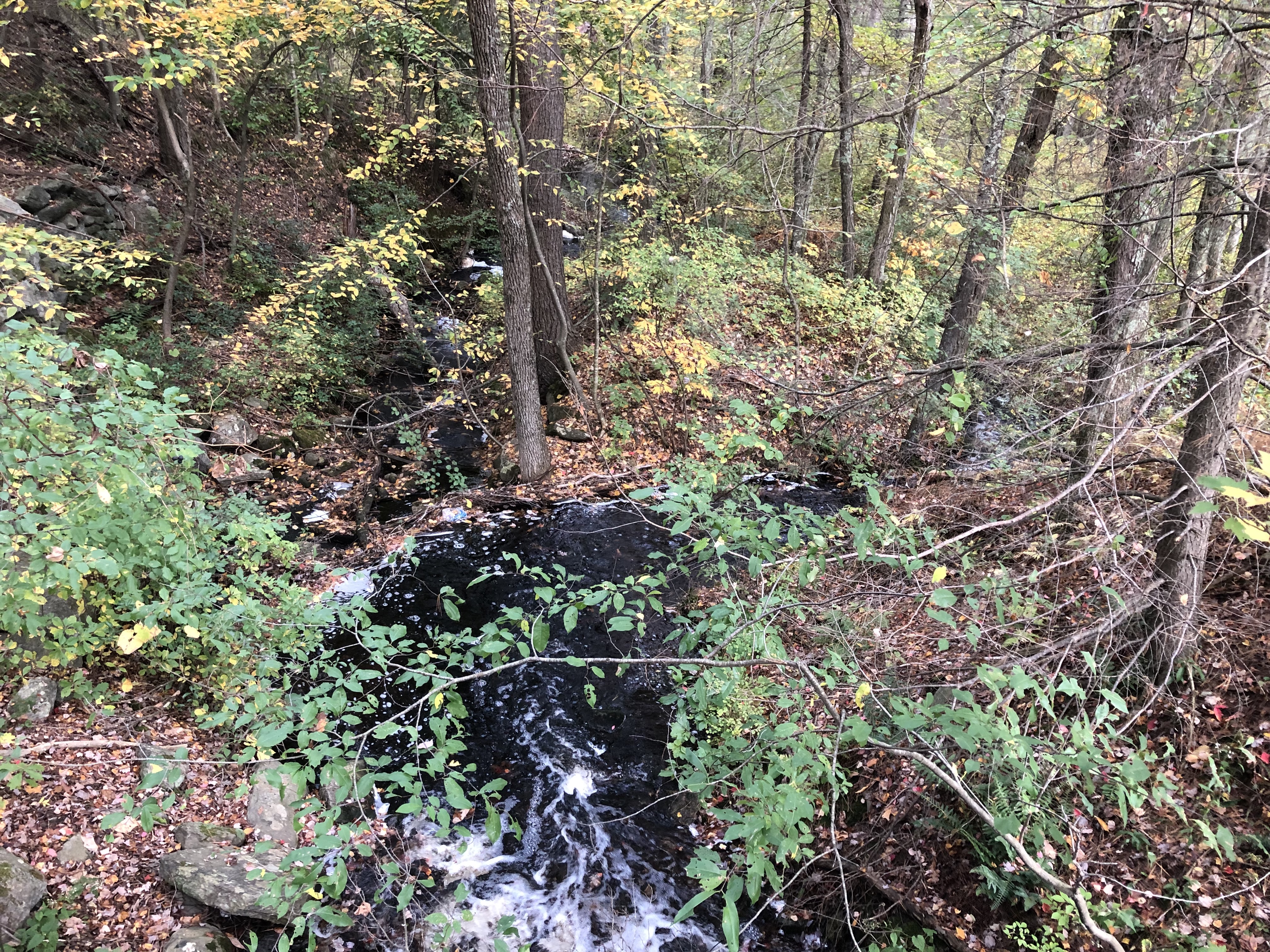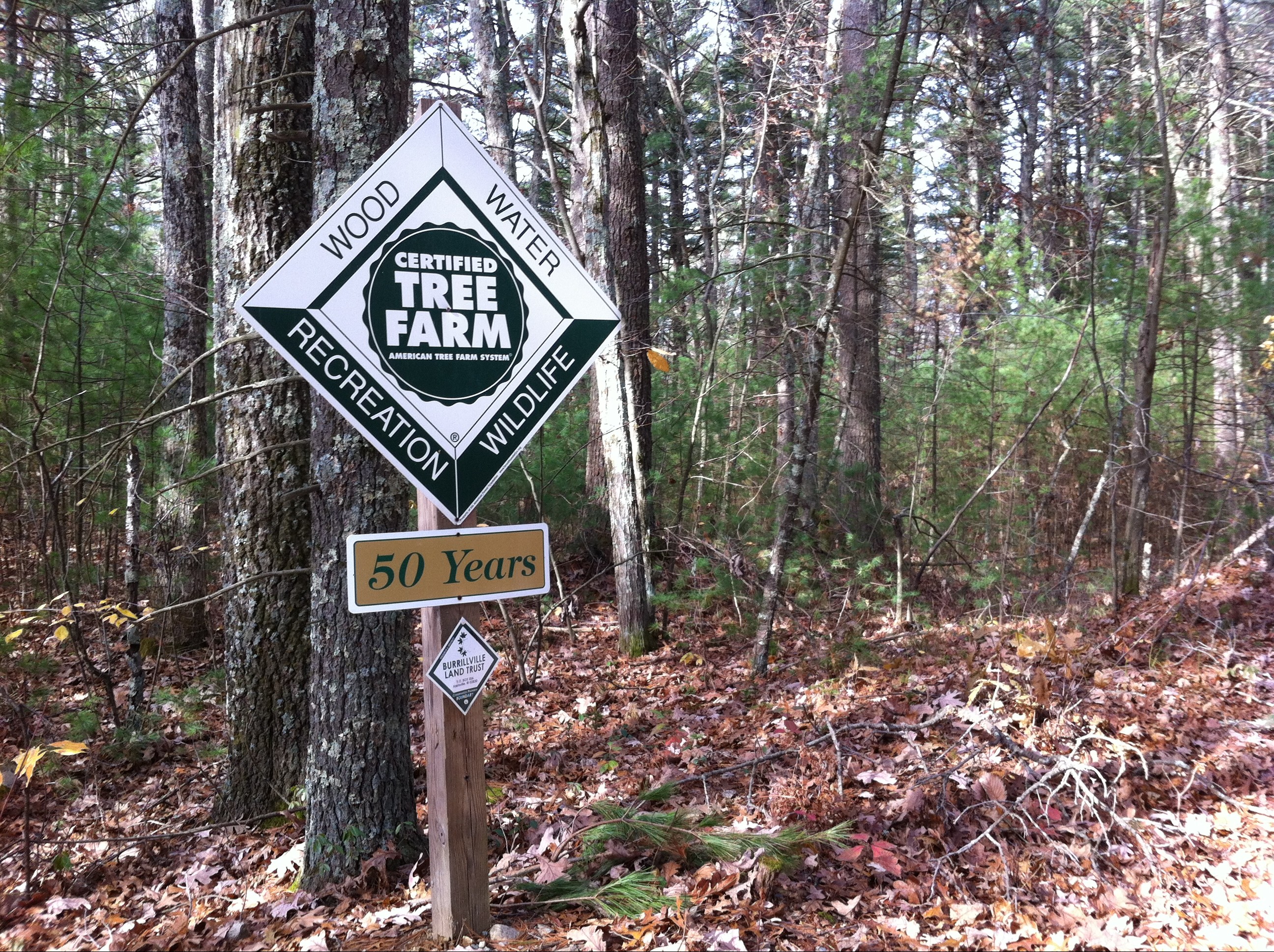This letter is from Laurie Esponosa, one of the granddaughters of Edward D. Vock. The Edward D. Vock property along Jackson Schoolhouse Road is named for an individual few of us knew or knew well. Here, in this letter from one of his grand-daughters, we gain new insight to the man and the land he loved.
“I always have to start by saying that my grandfather Edward D. Vock died when I was eight. I remember the funeral at 420 Jackson School House Rd. It was outside, my Uncle played the piano, it was a beautiful day and the birds were singing. And then at the end of the ceremony, there was a deep silence as if the birds and nature stood still in respect for the man of the woods. My grandfather was of humble beginning. He was an orphan, living in an orphanage in NYC. During the summers the orphanage would come up to Burrillville and go camping. Years later he bought the land from Father Holland. At the time my grandfather thought he purchased 180 acres of land, mostly open farmland. He happily set out to turn the land into a forest…this later became one of the first Tree Farms in Rhode Island.
My grandfather had little formal education but he had learned what was essential: the ability to learn. He submerged himself in books and worked to grow the forest and set about to make the farm work for him. He damned up the Leeland Brook and created the pond. He built a strong dam in order to create a powerful waterfall. He harnessed this water with a water wheel and built a building to house his water powered generator and then built a sturdy small two-story stucco home that used the generator for power. Even in 1971, when my grandfather passed away, the simple house stood proudly across from the pond. Out front was the pump that fed the home. Beside the house was the outhouse. My mother had had plans drawn up by an architect to restore the home. Later the house was burned down It was a magical setting by the brook. You could hear the rushing water throughout the home and the woods, now mature, sheltered the home. It’s not hard to say what made my grandfather unforgettable: he was a charming character, a free thinker, a deep thinker, and that man loved to talk. He enjoyed his life – from playing the piano and singing out strongly, to debating issues of the day, to teaching others to appreciate the woods. He would take you for a walk and the woods would come alive. He would teach you to use an ax, to chew a mint leaf, to find the best blueberries, to drain the pond and clean it out while experiencing an adventure with quicksand. He could see ahead into the world and worried about the dangers of smoking, water quality, air quality, land fills. He always followed the town politics and never failed to speak up and share his opinions. He taught all of us, to speak, to be well prepared.
My mother has memories of him getting her and her sister on top of a stump and having them practice speeches. It is no surprise that his daughters became teachers, and journalists, and political activists. We learned from the best. We learned to respect nature, preserve nature, to try to recycle, to value our beliefs beyond material gain. My grandfather worked to live, but never lived to work. He was a steam fitter at the Shipyards in Quincy. If need be he would sell off pieces of the land. He had a small lumber mill on the property and milled the tongue and grove pine boards that were later used in one of his homes. He sold gravel from the gravel pits, but mostly he farmed the woods and as a child those woods were as clean and beautiful as a park. I wish I had more time with my grandfather. Look for him, his spirit still lives in the woods…the Vock woods…forever.”

